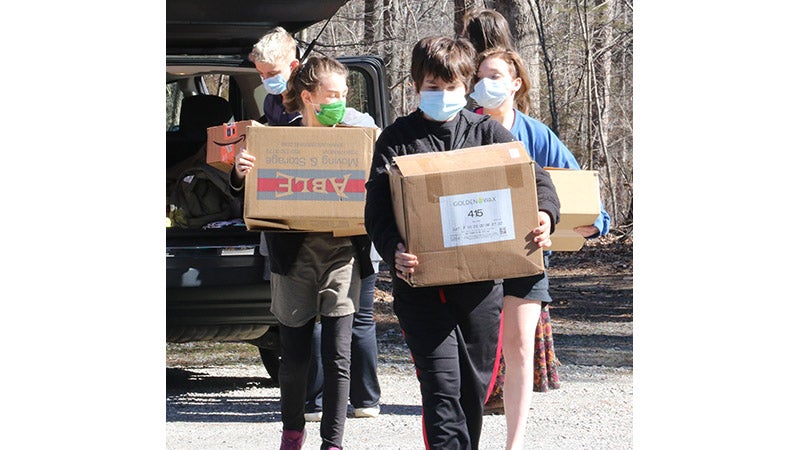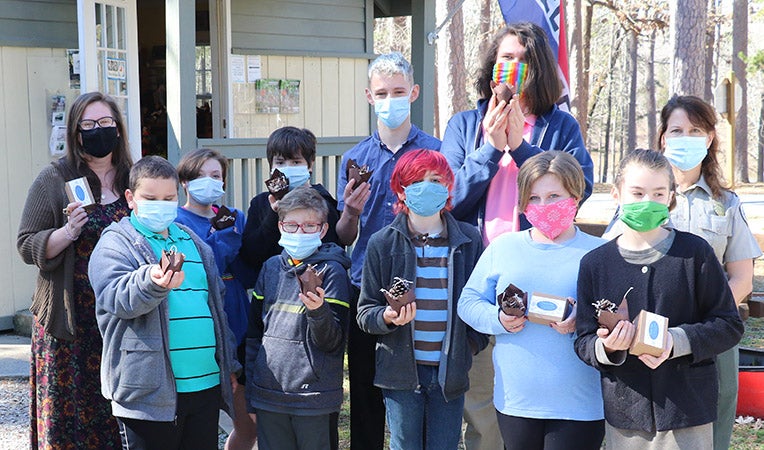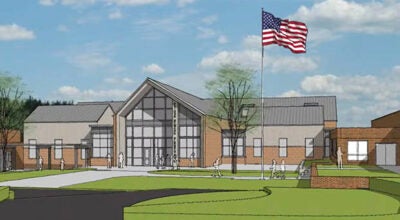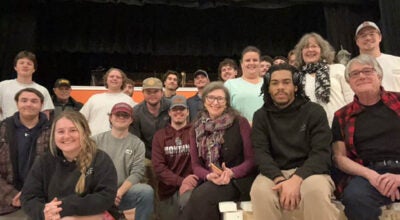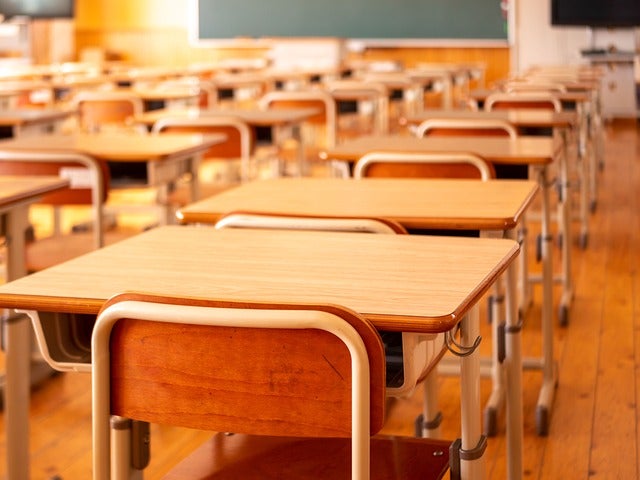Students create products for parks
Published 6:00 am Friday, March 5, 2021
|
Getting your Trinity Audio player ready...
|
Twin Lakes State Park received a delivery of new products Wednesday, March 3, to its gift shop. The delivery was made by the products’ actual producers in accordance with their contract.
Ordinarily, this might not draw much attention, but in this case, the producers were either in fifth, sixth or seventh grade.
These nine students attend Full Circle School, a nonprofit private school based out of Rice.
Angela Whittaker, the school’s director, explained that in general, one of the school’s important focuses is to prepare its students to see how what they are learning applies in the real world.
The nine students at Twin Lakes on Wednesday are participants in a class at Full Circle called the Student Market.
“The Student Market program is one of our elective courses that really focuses on taking the things we learn — writing, reading, communication skills, workforce skills — and really brings that to the forefront,” Whittaker said.
Rather than waiting until high school to introduce their students to career and technical education classes that involve designing and building things, Full Circle grants students this hands-on experience much earlier in courses like the Student Market.
“This class has fifth graders in it who actually have been critical in the design of some of these products,” Whittaker said.
She specifically described the products the students sold to Twin Lakes and three other state parks.
“They created a travel trio, which is a shampoo bar, a soap and a lotion bar, and it only has one cardboard container that can be completely recycled, so there’s no plastics, there’s no petroleum in their products, there’s nothing that’s an oil-base that isn’t sustainably sourced, that kind of thing,” she said. “The travel trio eliminates somebody having to carry bottles and liquids that spill, for example.
“So that was the big one, the state parks liked that. And people forget things when they come camping. They need soap and shampoo and those kinds of things.”
The other big product the students sold to the state parks is a firestarter.
“They designed a soy-based, all-natural firestarter as opposed to some of the paraffin or oil-based firestarters that you find in the market now,” Whittaker said. “Their large firestarters burn for over an hour, independently, and their little ones are pretty much water-resistant, and they’re very easy to light, unlike some firestarters you find on the market.
“So we really had the kids do market research, and then when they were interested in something, figure out, ‘Well, how can you do that better? How can you do that in a way that has less impact on the environment and can be more sustainable in your community?’”
For the students to be in a position to sell their products to the state parks, Whittaker had to become a vendor.
“When they presented to the state parks, it was something that we worked on for a long time,” she said. “The ladies that were there that represent the parks said, ‘This is the best presentation we’ve seen from any vendor who’s tried to get a product into the park.’
Whittaker said it was very “Shark Tank-esque,” alluding to a reality TV show that featured a panel of potential investors who listen to entrepreneurs pitch ideas for products.
“We really made sure that they understood their price points, and we taught them the business side of presentation and what it means to demonstrate a product,” Whittaker said, referencing the students. “So yes, they have contracts, and they had orders that they had to fill, and they had deadlines with producing so many and being on time. So yes, we have a contract with four state parks at this time.”
The parks that were sold on the presentation and invested in the students’ products included Sailor’s Creek Battlefield Historical State Park, Holliday Lake State Park, Bear Creek Lake State Park and Twin Lakes.
“And we’re about to get an order from Occoneechee (State Park), which is down in Clarksville,” Whittaker said.
The students also have products on sale at the Vintage Antique Shack in Farmville.
“I don’t think (the students) realize how businesses struggle to find products that are as good as what they’ve produced,” Whittaker said. “It isn’t just that oh, these kids did something cute. They really have good quality products.”
Some of the students shared Wednesday what they have learned from the Student Market class they are taking.
“I would definitely say I learned and I’m feeling a lot more confident in how I work with people and my teamwork skills,” sixth grader Makayla Kidd said, later adding the class has taught her how to manage money for business.
Whittaker said peer evaluation is something the students are required to do, learning to navigate that process to avoid offense but refine the work process nonetheless.
Fifth grader Charlie Atkinson said he has learned how to be a better employee and how to be a better leader who speaks up.
“The thing I learned in Student Market is how to be the best employee I can be right now,” seventh grader Jack Atkinson said. “I learned how to work with people, be a respectable role model and a good leader and how to manage money.”
“What I learned the most is how to support my fellow employees and encourage them that they can do a better job.” fifth grader Alistair Leake said.
Fifth grader Benji Williams was key in designing the firestarters.
“I think that I’ve learned that employees can really assist and help with a struggling business or even a successful business, such as when I pioneered the firestarters,” Benji said. “The firestarters were not working, so I carried on my idea and made it move from prettiness to effectiveness.”


